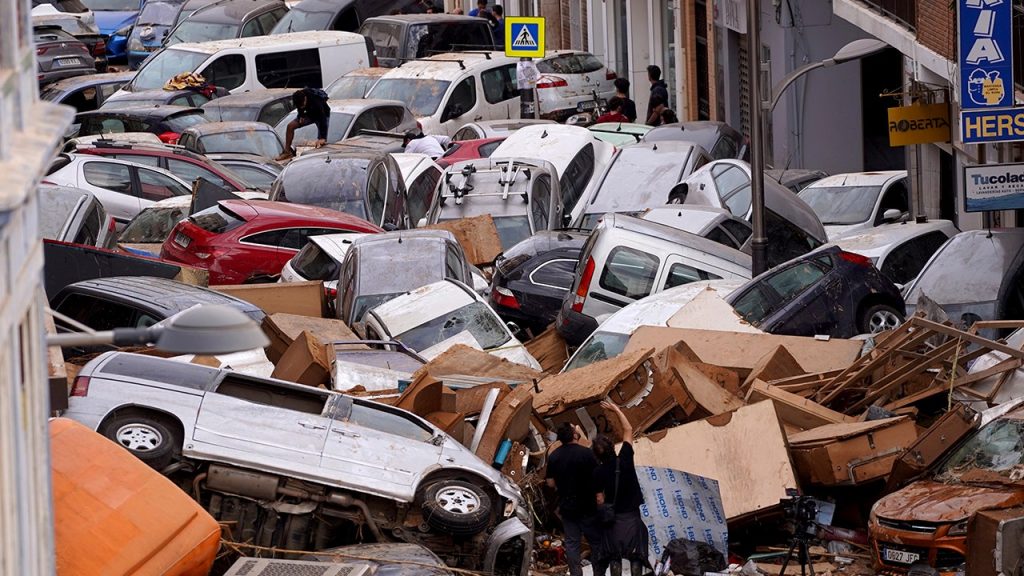Residents of the Valencia region in Spain are reeling from devastating flash floods that have left at least 158 people dead, with 155 deaths confirmed in Valencia alone. The aftermath of the floods, which have been described as Spain’s deadliest natural disaster in recent memory, is reminiscent of a tsunami, with survivors left to pick up the pieces as they mourn their loved ones. Cars were piled on top of each other, trees uprooted, power lines and household items were all covered in mud, leaving dozens of communities in Valencia in ruins.
The floods, which have turned narrow streets into death traps and spawned rivers that tore through homes and businesses, have demolished bridges and left roads unrecognizable. Rescuers have been searching for victims in stranded cars and sodden buildings, with an unknown number of people still missing. While some 70 people have been saved by helicopter rescues, ground crews are continuing their search for more victims. Spanish Transport Minister Óscar Puente confirmed that there were dead people inside some vehicles and the death toll has been steadily rising.
Scientists have linked the powerful flash floods in Spain to climate change, which has caused increasingly high temperatures, droughts, and extreme weather events in the region. The violent weather event caught regional government officials by surprise, as Spain has been suffering from a nearly two-year drought leading up to the deluge. The rain that fell in Valencia in just eight hours was more than what had fallen in the preceding 20 months. The storms also caused damage to farms and greenhouses across southern Spain, ruining crops and devastating the region’s agriculture industry.
Despite the ongoing floods and destruction, regional authorities are working to provide relief to affected residents. Over 1,000 soldiers from Spain’s emergency rescue units have joined regional and local emergency workers in the search for bodies and survivors. Many residents have been left without electricity, water, and access to basic goods, prompting Valencia regional President Carlos Mazón to request assistance from Spain’s army in distributing supplies. The region has been partly isolated, with roads and train lines cut off, including the high-speed service to Madrid, which officials estimate will take two to three weeks to repair.
As the search for victims continues, residents are left to salvage what they can from their ruined homes and communities. Many have been forced to walk long distances in sticky mud to find food and water, while others rely on whatever bottled water they can find. Some residents have resorted to looting, prompting the National Police to arrest 39 people for theft. Despite the challenges faced by residents, Spanish Prime Minister Pedro Sánchez has urged people to stay home and heed official recommendations to help save lives. The region remains in a state of mourning, as families mourn the loss of loved ones and begin the long process of rebuilding their lives in the wake of the disaster.















